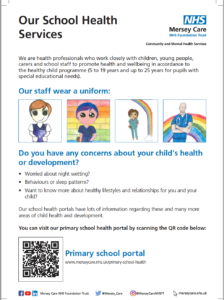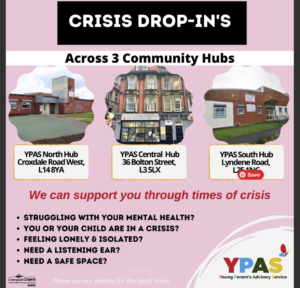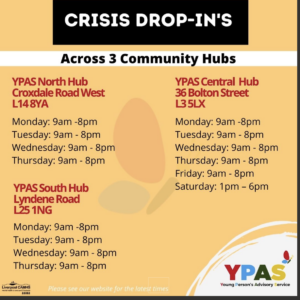- Home
- About Us
- Statutory Information
- Curriculum
- Classes
- Parent Information
- Latest News
- Letters Home
- Useful Documents
- 2 year old places and funding
- Sickness & Medication
- Term Dates
- Mental Health and Wellbeing
- Safeguarding and Online Safety
- Operation Encompass and domestic abuse
- Anti bullying
- Attachment & Trauma Informed
- Parent Questionnaire Results
- School Meals
- Useful Links
- Catholic Life
Category: Uncategorised
ASD Q&A for all parents.
Safeguarding concerns
9th November 2022
Dear Key stage 2 parents
This week has been especially difficult at home time on the KS2 yard due to the change in the weather and the start of the darker nights which have made visibility difficult.
Staff and I had some safeguarding concerns ensuring that all children were handed over safely to parents especially as some parents don’t come onto the playground but stand at the railings or remain in their cars. For staff on the gate it has also been especially difficult to monitor that these children have reached their parent safely.
We have therefore decided to review our end of day procedures in order to safeguard your children.
Moving forward from Thursday 10th November the procedure for home time dismissal at 3.20pm will be;
- Children from years 3 and 4 will be dismissed from the gym from separate doors.
- The children will be in their class lines and will be handed over directly to their parent /carer at the hall door. Not only will this be easier to manage but it will also reduce the number of children on the KS2 yard.
- Year 5 and Year 6 will still be dismissed from the playground however we need all parents to come onto the playground so that all children can be handed over directly to a parent or carer.
- If parents could stand beyond the umbrella this will give staff and children the space to line up and dismiss the children safely.
- The children will line up with their teacher and the teacher will dismiss each child directly to their parent /carer on the yard.
- Please don’t call the child away from the line before the teacher has lined the children up and identified their parent/carer is there. This is to ensure that your child is sent safely home.
On another matter I have received several complaints from families and local residents due to parents parking on the zig zag lines outside the school gate. This causes an obstruction which can be very dangerous especially when children are trying to cross the road with their parents. Can I ask parents to park safely away from the school gate as it is putting the children at risk and could result in a serious accident?
I would like to thank you in advance for your co-operation as I’m sure you would agree that the safety of your children is paramount.
Mrs Catherine Sergeant
Reception baseline assessment
Now that the children are settled into Reception, staff will begin administering statutory assessments. Please click on this link to access further information about this national screening.
Thank you
Welcome back -Monday 5th September 2022
We are looking forward to seeing the children tomorrow.
Breakfast club will be open as usual from 8am and the cost is £1.50 per day.
To reduce congestion please use the gates suggested for your child’s year group. Their teachers will be waiting to receive them on their playground from 8.45am.
Families can enter together for convenience.
Hapton Street Nursery Gate – Children new to Reception classes , nursery and 2 year olds
Main Gate – Years 3-6
Park gate-Years 1 and 2
The school office will be open for those families who wish to buy ties, reading folders etc.
Can I also remind families from years 3 -6 who do not receive free school meals that the cost of a school hot or cold meal is £1.50 per day?
Reception children and Nursery children who are NOT new to school will return on Wednesday 7th September . This is to allow our new reception and nursery children settle quickly into our school .
Return to school information
The following years groups will return to school on
Monday 5th September
Years 1 to 6 – all children
2 Year Old Nursery children
Children NEW to Nursery and Reception classes.
Wednesday 7th September
Last years nursery children who are moving to Reception
Last years nursery children who are remaining in nursery for another year .
(This gives us the opportunity to settle those youngest children who are new to our school)
We look forward to welcoming you all back to school next week
MMR vaccinations update
MMR Imms School Letter July 22
Please click on the link above to read a letter from Matt Ashton , Director of Public Health
Results of our Parents’ Questionnaire 2022
We are delighted to share with you the results from our parent questionnaire from May 2022.
Click on the link below to access the results.
Year 6 Transition to High School Worries Coffee Morning
YPAS and the MHST are hosting a virtual coffee event for parents/carers specifically focussed on transition. Please share this with you families and encourage them to book on using the following link:
FREE Parent Workshops June 2022 – Tues and Thur evenings 6-8pm
YPAS offer a mental health crisis drop-in service.
Well-Being Walk for Parents/Carers Across Liverpool.
Bishop Tom’s Golden Jubilee
In the coming weeks Bishop Tom Williams, our Chair of Governors, will be celebrating the Golden Jubilee of his Ordination in to the priesthood. He will celebrate Mass at St Anthony’s Church on Friday 27th May at 7pm and at the Cathedral on Sunday 29th May at 11am. Children, parents, staff and parishioners are all invited to join Bishop Tom for this very special occasion.
We look forward to seeing you there.
THANK YOU!
A great big thank you to all our parents and carers for attending Parents’ Evening on Tuesday, it was wonderful to welcome families back in to school.
Parents’ Evening
Spring term parents’ evening will be on Tuesday 5th April from 3.30pm. Parents will be able to book a time slot to meet with their child’s teacher. Further information will be sent out via the school app.
Help for Ukraine
I’m sure like everyone in school you have been asking “How can we help the families of Ukraine?” The children and staff have been praying for peace . You may like to share this prayer with your children at home.
The children and staff have also decided that the focus of our Lenten giving this year will be to help the children and families of Ukraine in a practical way.
We would like to support The Archdiocese of Liverpool who have organised parish collection points for essential goods which will be transported to help Ukrainian families in need .
Each Friday during Lent we are asking the children to donate a new essential survival item from the list below and then school staff will deliver the goods to a local parish collection centre. Each class will have a donation box to collect the items received and please ensure all items are new and unopened.
Essential items for Ukraine poster
- Foil survival blankets
- First aid kits
- Bandages of different widths
- Toys
- Crayons
- Nappies
- Nappy rash creams or baby bath lotions
- Powdered baby milk and Baby bottles
- Shampoos, soap
- Toothbrushes, toothpaste
- Towels
- Children’s socks, underwear, vests , gloves
- Sleeping bags
- Metal cups
- Thermal clothing
- Hair brushes
The Archdiocese has also set up a text service for those families that would also like to make a cash donation to help Ukraine . Click on this link below for more information
I would like to thankyou in advance of your support
Mrs Sergeant
World Book Day 2022
We are really looking forward to celebrating world book day on Thursday 3rd March. Our teachers have been busy planning exciting and engaging activities to inspire a love for reading. We have guest readers calling in throughout the day and staff and children are encouraged to bring their favourite books to school to share with their classes.
We would love parents and families to take part on this day by sharing their favourite books with us too, tag us on Twitter @oli_primary.
Reading is huge part of our curriculum and many of the national curriculum subjects are taught using a quality text approach, we firmly believe that learning to read and developing a love of reading is our number one job!
World book day is the perfect reason for us to read, read and read some more!
”Reading is to the mind what exercise is to the body” – Joseph Addison
ADHD Foundation – Free support for parents
Click here to view the ADHD parent support flier
Understanding and supporting your child’s early development
Where?: Online live webinar
Date/Time?: Tuesday 15th February or Thursday 17th February 10am –2:30pm
Topics covered:
10am – 11am – Understanding early brain development and
neurodiversity – some discussion of Autism and ADHD.
11:15am – 12:15pm – Sensory sensitivities.
1:15pm – 2:30pm – Developing skills in emotional self-regulation.
Please register on the link below or contact emma.weaver@adhdfoundation.org.uk for
further information:
15th Feb: https://attendee.gotowebinar.com/register/2290154498121950475
17th Feb: https://attendee.gotowebinar.com/register/4301564786091677199
Happy New Year
School opens as normal tomorrow the 5th January 2022 with breakfast club from 8am.
If your child has any COVID19 symptoms please do a LFT test before attending school to ensure that they are negative.
Enjoy the last day of the holiday and we are looking forward to seeing everyone back in school tomorrow morning.









